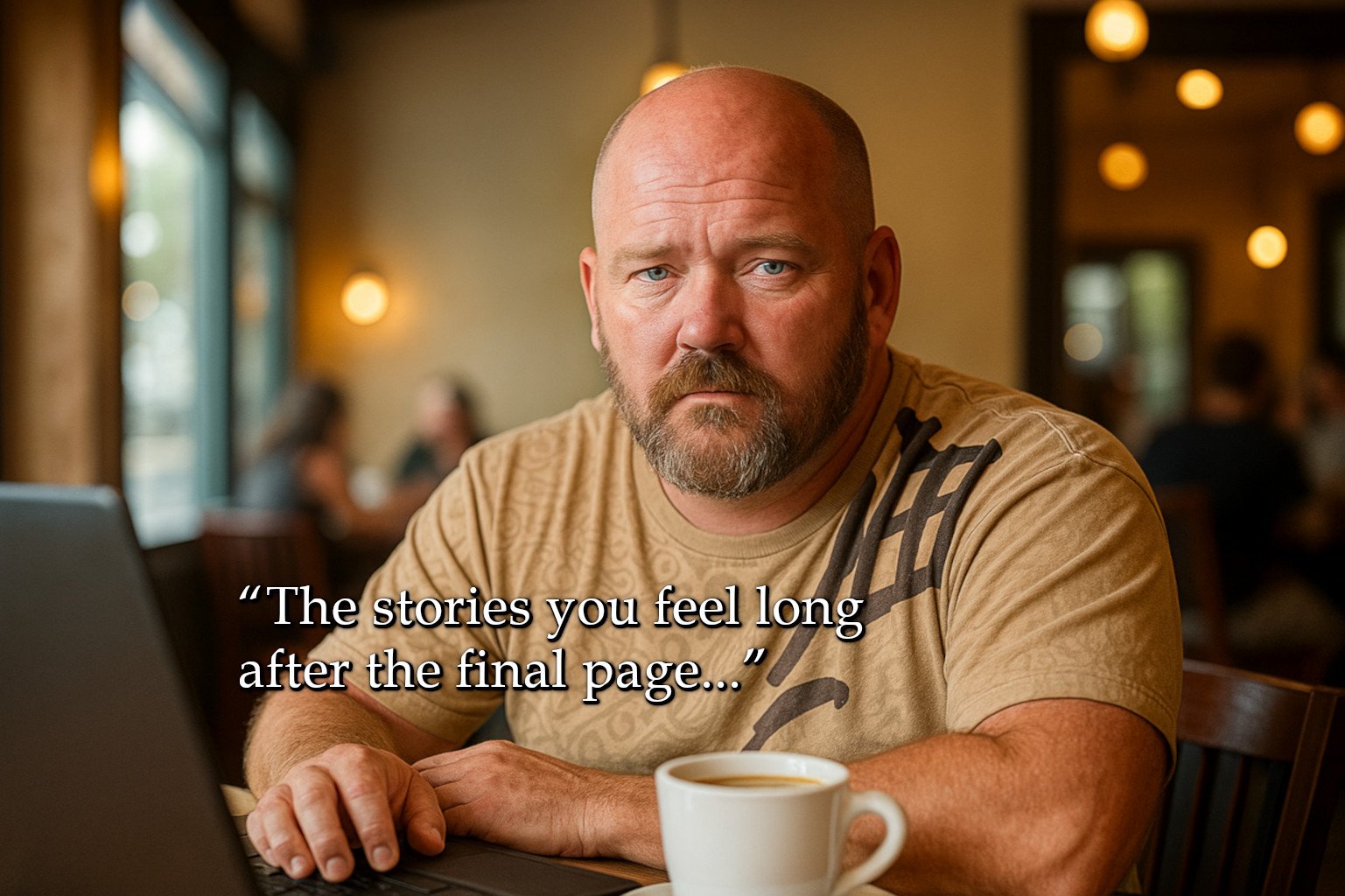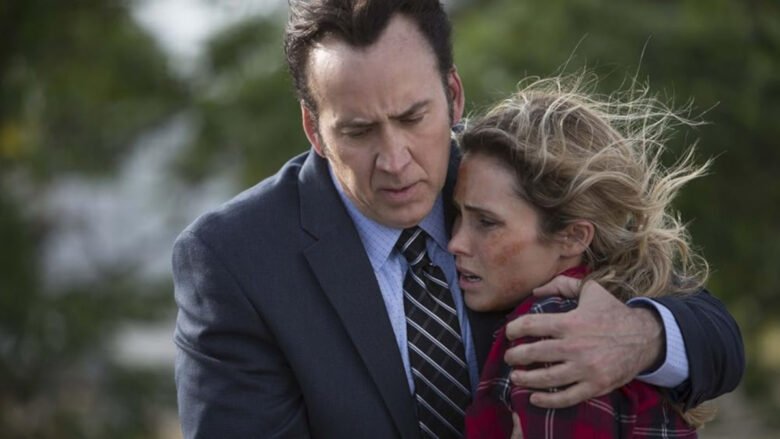When you hear the title Vengeance: A Love Story, you might expect a gritty romance, a revenge thriller built around heartbreak or lost love. And with Nicolas Cage in the lead role, maybe something emotionally charged but ultimately cathartic. What you get instead is a harrowing story of sexual violence, a broken justice system, and the raw aftermath of trauma that may be too real for many viewers to sit through. This is not a love story. This is a punch to the gut.
Based on Joyce Carol Oates’ 2003 novella Rape: A Love Story, the film opens with a crime so brutal it’s hard to watch—because it’s meant to be. Teena Maguire (played by Anna Hutchison), a single mother, is gang-raped by four men in a park after a Fourth of July party. Her 12-year-old daughter, Bethie, witnesses the entire thing, hiding just out of sight. That experience alone would be enough to break most children, but Bethie finds herself on her own, walking through the streets at night, traumatized and confused.
Enter John Dromoor, played by Nicolas Cage, a Gulf War veteran and local detective. When he discovers Bethie alone and soon finds her mother’s battered, barely-alive body in a boathouse, the path forward is supposed to be clear: the men responsible should be locked away. But justice, as this movie brutally reminds us, is often a performance for the privileged.
Don Johnson plays Jay Kirkpatrick, the high-priced, smirking defense attorney who knows how to weaponize bias, discredit witnesses, and turn truth into suspicion. His courtroom scenes are nauseating in their realism—calling into question Teena’s character, implying she “asked for it,” and doing everything in his power to twist the narrative until the perpetrators walk free.

This is where Vengeance: A Love Story becomes something else entirely.
Cage’s Dromoor is no superhero. He’s not delivering long-winded speeches or breaking bones in a choreographed ballet of justice. He’s silent, simmering. And when he decides to take matters into his own hands, the film doesn’t glorify it. It just lets it happen, with the same cold finality that Teena faced in that boathouse.
The Question That Lingers: Why So Graphic?
The rape scene in this movie is not implied—it is shown, and it’s shown in detail. For some viewers, especially survivors of sexual assault, it will be too much. And that opens the door to a necessary question: why do filmmakers feel the need to push boundaries to this extreme?
Some will argue it’s about realism. That sugarcoating violence, especially sexual violence, minimizes the horror and disrespects victims. Others will say that when something is so graphic it triggers panic, nausea, or trauma in viewers, especially those with lived experience, it ceases to be storytelling and becomes exploitation.
There’s no easy answer. But Vengeance: A Love Story doesn’t seem to use the violence for shock value. It feels angry. It feels personal. It feels like the filmmakers are challenging the audience to stop looking away from what happens every day in real life—and from what happens next when the justice system fails.
Still, that doesn’t make it easier to watch.
A Misleading Title with a Brutal Message
The title might be the most misleading part of the entire film. There is no romance between John and Teena. No candlelit scenes. No affection blooming in the aftermath of pain. If there is “love” in this story, it’s in the form of protection—a detective who decides one child’s trauma, one mother’s life, is worth more than the red tape and courtroom games. But even that feels more like duty than romance.
What Cage delivers is a restrained performance of a man haunted by war, justice, and the weight of witnessing too much. He barely speaks, but his face says what the script doesn’t. He’s not a romantic lead—he’s a man with a trigger and a line he finally chooses to cross.
Should You Watch Vengeance: A Love Story?
Only if you’re ready. Vengeance: A Love Story is not entertainment in the traditional sense. It’s not fun, it’s not escapist, and it’s definitely not romantic. But it is honest in its rage. It asks difficult questions about victim-blaming, privilege, and the thin line between justice and revenge.
For fans of Nicolas Cage who appreciate his quieter, more haunted performances, this is worth seeing. For those curious about how fiction intersects with painful reality, it may hold value. But for survivors of sexual violence, proceed with caution. The film may hit harder than any warning label can prepare you for.




